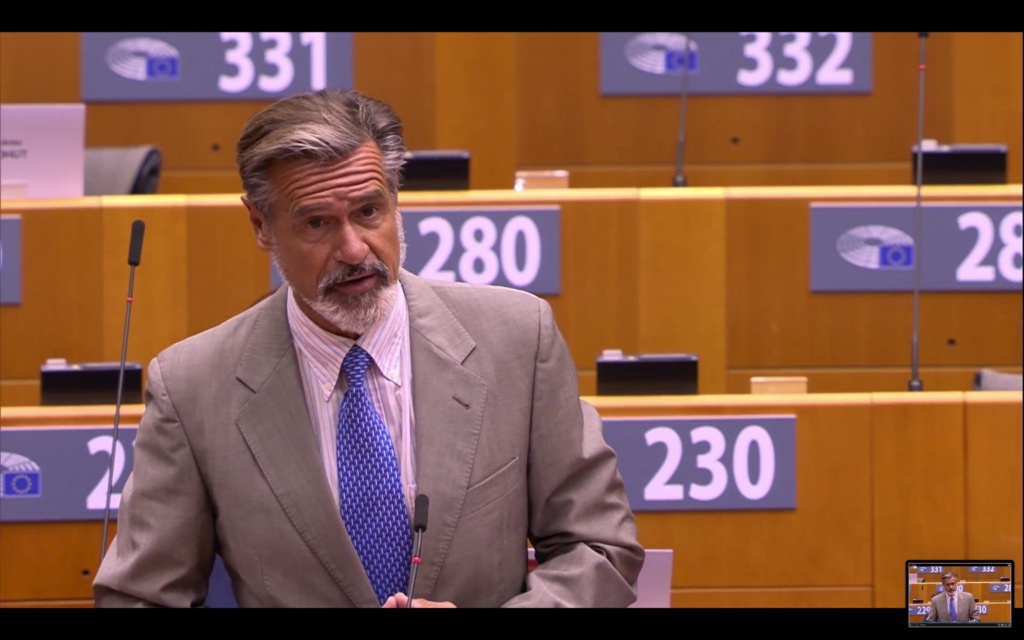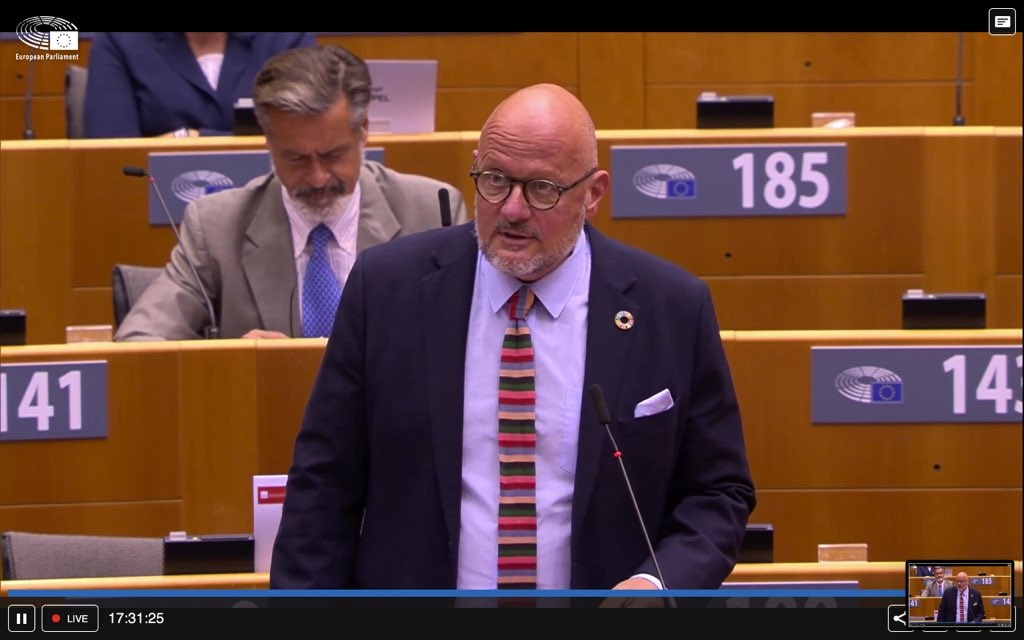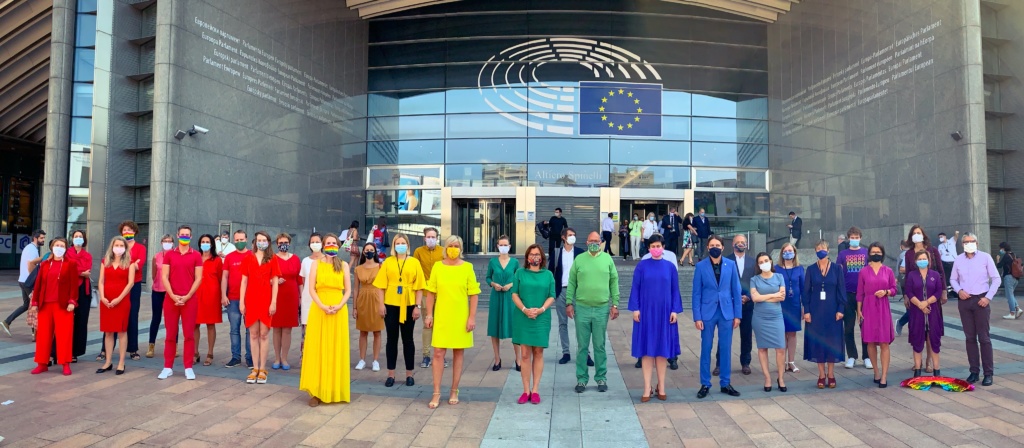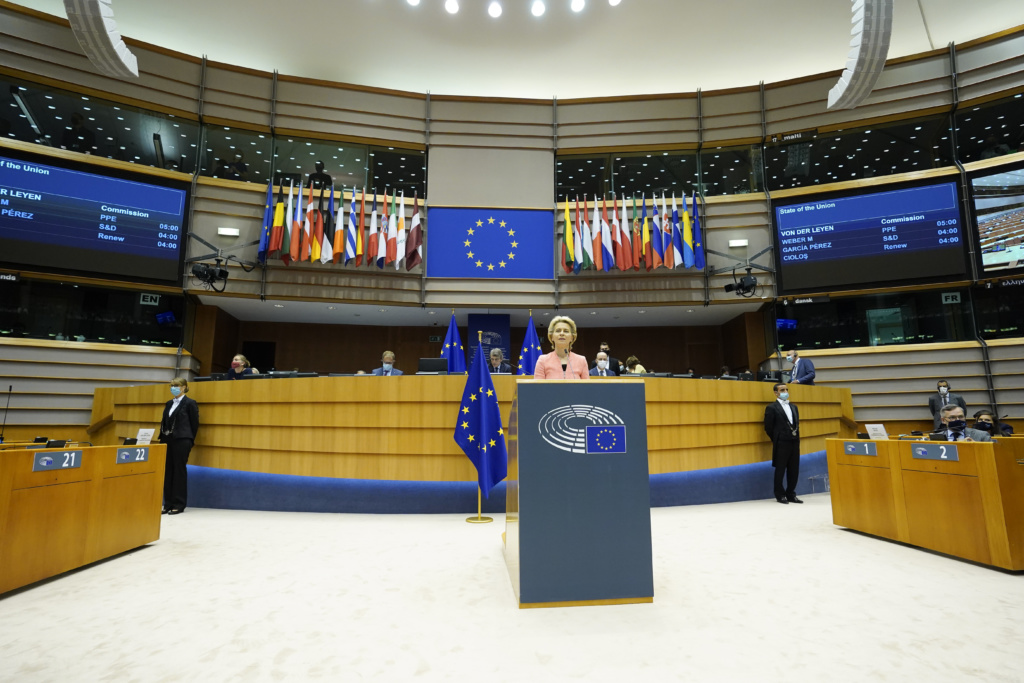Plenary summary: Article 7 report on Poland, LGBTI-free zones, solidarity action with Polish LGBTI community, State of the EU speech and Sakharov Prize nomination
During its September plenary session, the European Parliament saw several initiatives surrounding the human rights of LGBTI persons: a debate on the article 7 report accompanied by an Oral Question on the legality of LGBTI-free zones under the Equal Treatment Directive, a solidarity action by Intergroup MEPs, the “State of the EU” speech by Commission President Ursula von der Leyen and the nomination for the Sakharov Prize.
Joint Debate on Poland
Debate on article 7 report concerning a clear risk of a serious breach of the rule of law in Poland
On Monday 14 September, Members of the European Parliament debated the report on the Determination of a clear risk of a serious breach of the rule of law in Poland. Although the Commission triggered an infringement procedure (as codified by Article 7(1)TEU) concerning rule of law as codified in Article 2 TEU, the EP went further in calling for the same infringement procedure to be opened on the basis of fundamental rights, as equally codified in Article 2 TEU.
The report addressed the situation of rule of law, which has continuously deteriorated.

“The situation is extremely concerning. In fact, it has been defined as a constitutional breakdown on more than one occasion.”
Rapporteur Juan Fernando Lopéz Aguilar (Chair of the Committee on Civil Liberties, Justice and Home Affairs)
In addition, the report furthered the initial scope of the Commission infringement procedure, encompassing democracy and fundamental rights issues such as media freedom, freedom of assembly, sexual and reproductive health and rights and the rights of LGBTI persons, which demonstrate the lack of respect for Union values.
The report was adopted with the following votes: 513 +, 148 -, 33 abstentions.
Read our live tweet of the discussion of the report here.
Read our press release on the adoption of the report here.
Check the results of the roll-call votes on the amendments here and the roll-call final vote here (page 6-7).
Read the final report after amendment votes here.
Oral Question on compliance of LGBTI free zones with the recent CJEU Rete Lenford case
Within the discussion of the previously-mentioned report, the Oral Question drafted, co-signed by 59 Intergroup MEPs and submitted by the Intergroup in June 2020, was addressed to the Commission by Co-Chair Marc Angel (Luxembourg, S&D).
The question addressed the recent CJEU decision, which recognised that homophobic statements could constitute discrimination in employment and occupation when they are made by a person who has or may be perceived as having a decisive influence on an employer’s recruitment policy.

Therefore, the LGBTI Intergroup asks the Commission if it agrees that LGBTI-free zone declarations risk discriminating against LGBTI persons in employment and occupation. Will the Commission start an infringement procedure based on the EU Directive on Equal Treatment and Employment? The Polish LGBTI community needs the Commission to take stronger action. What concrete steps will the Commission take to protect it, especially when it comes to protecting human rights defenders, like the authors of the Atlas of Hate?
Marc Angel, Co-Chair of the LGBTI Intergroup
Watch Marc Angel’s intervention here.
Read the Rete Lenford CJEU decision here.
Solidarity action with Polish LGBTI community

On Tuesday 15 September, 32 Members of the European Parliament (MEPs) organised a solidarity action in front of the European Parliament to show their support with the Polish LGBTI community. The MEPs dressed in the different colours of the Pride flag, re-enacting the action by the Polish Members of Parliament ahead of the inauguration speech of the President after the election.
State of the Union speech by Commission President von der Leyen

On Wednesday 16 September, European Commission President, Ursula von der Leyen, delivered her “State of the EU” speech at the Plenary.
The Intergroup strongly welcomes the commitments by President von der Leyen, while highlighting three particular parts of her speech:
- Hate speech & hate crime: “The Commission is putting forward an action plan to start [building a truly anti-racist Union]. As part of this, we will propose to extend the list of EU crimes to all forms of hate crime and hate speech – whether because of race, religion, gender or sexuality. Hate is hate – and no one should have to put up with it.”
- LGBTI-free zones: “So I want to be crystal clear – LGBTQI-free zones are humanity free zones. And they have no place in our Union. And to make sure that we support the whole community, the Commission will soon put forward a strategy to strengthen LGBTQI rights.”
- Freedom of movement of rainbow families: “As part of this, I will also push for mutual recognition of family relations in the EU. If you are parent in one country, you are a parent in every country.”
The Intergroup strongly welcomes the two legislative proposals and the condemnation of the LGBTI-free zones in Poland.
Read the whole State of the EU speech by Commission President Von der Leyen here.
Sakharov Prize Nomination
On Thursday 17 September, the LGBTI Intergroup officially submitted its nomination to the Sakharov Prize – the 4 LGBTI activists who created the “Atlas of Hate”, Jakub Gawron, Paulina Pajak, Paweł Preneta and Kamil Maczuga.
The nomination was sponsored by Co-Chairs Marc Angel and Terry Reintke, Vice-President Malin Björk and Intergroup Member Rasmus Andresen, and gathered a total to 43 signatures by MEPs across the political spectrum.
Check the timeline of the nomination process here.





